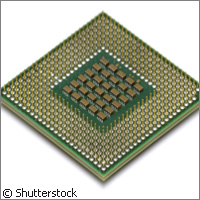Future phones just got smarter
The next generation of mobile phones will be able to do more than ever before - both safely and efficiently. An EU-funded team has created a software platform that enables the use of multi-core technology on mobile embedded computing devices by way of virtualisation techniques. The dual multi-core and virtualisation solution developed by the EMUCO ('Embedded multi-core processing for mobile communication systems') team allows for both higher processing capacity and low power consumption, with the added value of security and flexibility. The project received almost EUR 3 million in support under the 'Information and communication technologies' (ICT) Theme of the EU's Seventh Framework Programme (FP7). The EMUCO project began as an idea developed several years ago by European academics and industrial partners in the mobile embedded market. Their aim was to explore the principles, suitability and commercial feasibility of multi-core technology and virtualisation as a way to juggle the needs of high computational performance and flexibility with low power consumption. The two-year project, coordinated by Ruhr-Universität Bochum in Germany, has achieved just that through a software platform based on a small operating system kernel. The kernel, which is accompanied by a range of operating system components, makes a variety of uses possible. Multi-core technology refers to processors that have two or more working processor chips. The technology, adopted in personal computer design several years ago, ensures enhanced performance with less power through parallelisation. Virtualisation, meanwhile, isolates the software from the underlying hardware so that there is no direct access and control. This makes it possible to protect your device and download applications safely without the fear of contracting a virus. Dr Attila Bilgic from Ruhr-Universität Bochum said: 'Today's smart phone users want to download applications and individually customise their phones according to their needs and preferences.' The platform developed under EMUCO ensures that applications for mobile phones will be broader (a result of the higher processing capacity brought about by the multi-core technology) and more flexible (a result of visualisation). Mr Adam Lackorzynski of Technische Universität Dresden in Germany explained that the system creates access to the latest embedded multi-core architectures which offer efficient programming and processing of a broad range of different applications. These applications can range from 'special purpose applications, such as protocol implementation, to whole virtualised commodity operating systems'. 'It is expected that the emerging multi-core and virtualisation technology [will] revolutionise how a mobile phone will be perceived and opens new business models in the telecommunication market,' concluded Dr Maria Elizabeth Gonzalez from Ruhr-Universität Bochum. In addition to Ruhr-Universität Bochum, the EMUCO consortium comprised Infineon (Germany), Technische Universität Dresden (Germany), 'Politehnica' University of Timisoara (Romania), IBM Rational (Sweden), Architecture for the Digital World (UK), and the University of York (UK).



